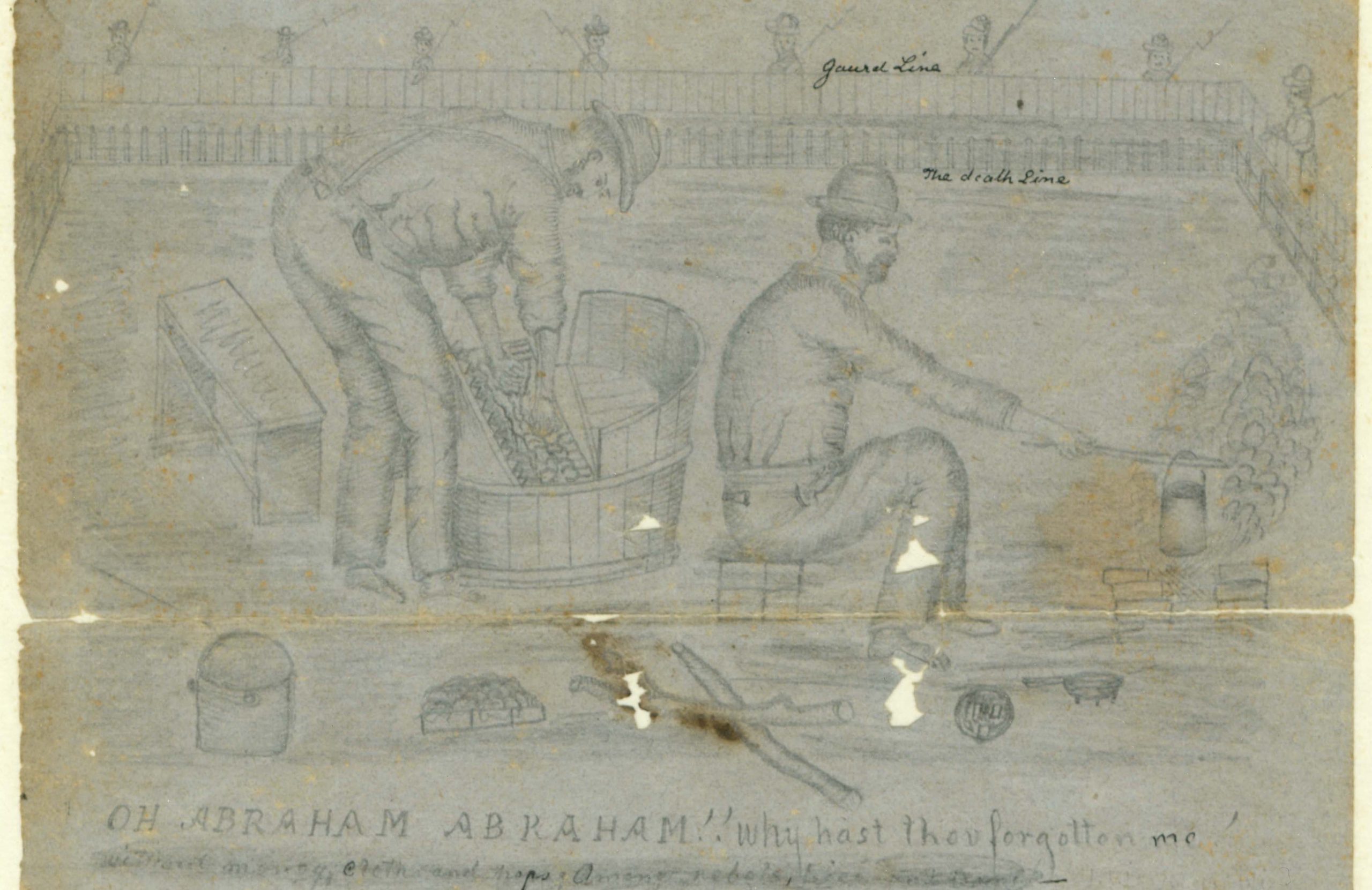The Civil War 150 Legacy Project has been travelling around Virginia and scanning privately held Civil War-related manuscript documents for the past four years. Recently, as I was cataloging some of the scanned materials, I came across a letter, written 14 August 1864 by Ole R. Dahl of the 15th Wisconsin Infantry Regiment, Company B. Dahl had been captured by Confederate forces and was imprisoned in Savannah, Georgia. Written to his son, Anton P. Dahl, the letter relates his suffering in prison, his concern for various family members, and his hopes for release. Dahl writes that if he knew “all the truble [sic] and suffering I since have been subject to I would rather be shott [sic] down on the spot before I would surrender.” What really caught my attention was the beautiful drawing at the top of the letter, assumedly done by Dahl. The drawing features two prisoners in camp washing and cooking, with areas labeled “the death line” and “guard line” surrounding the prison. Underneath the drawing was written ‘Oh Abraham Abraham!! Why has thou forgotten me!”
According to information on the Wisconsin Historical Society website, Dahl enlisted on 9 October 1861 and was mustered into service on 13 February 1862 to serve with the 15th Wisconsin Infantry Regiment, Company H. In March 1863 he was promoted to first lieutenant and transferred to Company B. He was detached to various brigades to serve as a topographical engineer before being captured by Confederate forces near Morristown, Hamblen County, in eastern Tennessee. He was mustered out of service on 12 March 1865 and later became a state land agent in Tomah, Monroe County, Wisconsin. In 1865, Dahl published a booklet detailing his prison experiences entitled Key to Southern Prisons of United States Officers (New York, New York, 1865; available on microfiche at the Library of Virginia).
If you have any original manuscript materials that you would like to submit to the Civil War 150 Legacy Project please contact me at renee.savits@lva.virginia.gov.
Renee Savits – CW 150 Legacy Project







